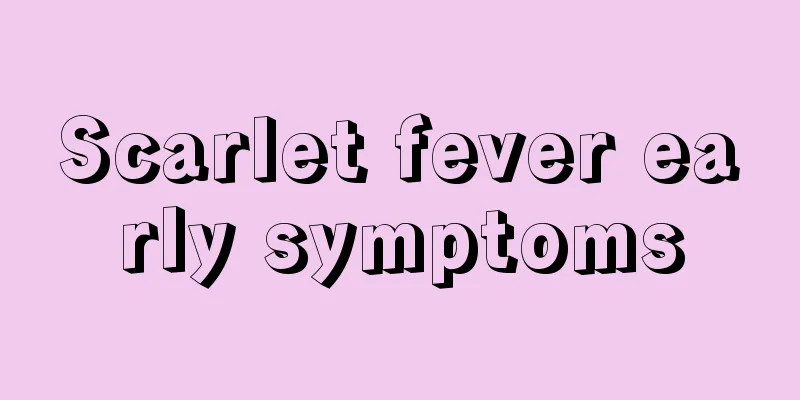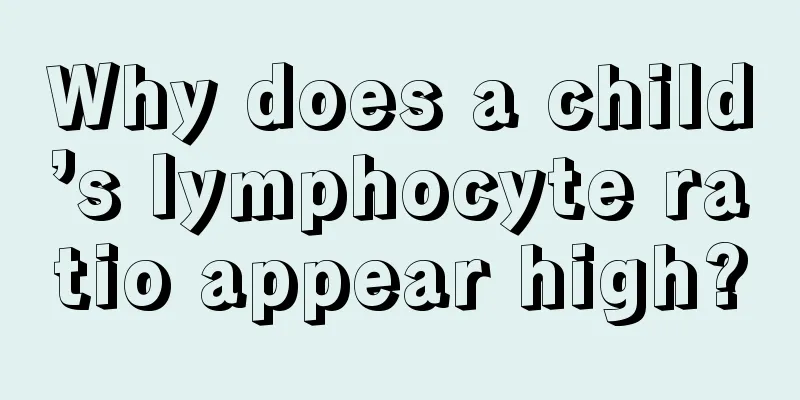What causes premature babies to have a fast heart rate?

|
A fast heart rate in premature babies is often related to the poor autonomy of the child's heart rate. When changes in excitability and conductivity occur, it often causes an abnormal heart rate, which in turn causes arrhythmia. This situation is relatively dangerous and is an important cause of sudden death in children. Therefore, we must not take it lightly and must conduct timely examinations and provide timely and effective treatment. Let's take a look at this aspect. What causes premature babies to have a fast heart rate? 1. Fetal arrhythmia Neonatal arrhythmia can occur in utero or after birth. When it occurs in utero, it is called "fetal arrhythmia". The causes of arrhythmia after birth are multifaceted. Common causes are as follows: (1) Various organic heart diseases such as congenital heart disease, viral myocarditis, cardiomyopathy, etc. (2) Various neonatal infectious diseases such as neonatal pneumonia, sepsis, upper respiratory tract infection, intestinal infection, etc. (3) Neonatal asphyxia and hypoxia are common causes of arrhythmias. Other perinatal factors (i.e. abnormalities of the mother and fetus before and after delivery), such as medication by the pregnant mother before and during delivery, umbilical cord around the fetal neck, cephalopelvic disproportion, and intrauterine distress, can all cause arrhythmias. (4) Water and electrolyte imbalance such as hypokalemia, hyperkalemia, hypocalcemia, acidosis, and certain drugs such as digitalis. (5) Neonatal cardiac catheterization and cardiac surgery (6) Healthy newborns may experience arrhythmias, which may be related to the immaturity of their conduction system. 2. Classification of neonatal arrhythmias (1) Sinus arrhythmia: sinus tachycardia, sinus bradycardia, sinus arrhythmia, sinus arrest, sick sinus syndrome (sinus node dysfunction). (2) Ectopic beats and ectopic rhythms: premature beats (atrial, nodal, ventricular), supraventricular tachycardia, atrial fibrillation, atrial flutter, ventricular tachycardia, ventricular flutter and fibrillation (3) Conduction abnormalities: sinoatrial block, atrioventricular block, bundle branch block, and preexcitation syndrome. |
<<: Is premature infant cholestasis easy to treat?
>>: Can newborns be bathed with mugwort water?
Recommend
How to correct a child's stuttering?
When parents are taking care of their children, i...
Is it okay for children to walk barefoot?
Walking barefoot is an activity that many childre...
How to treat children's excessive liver fire? It turns out this is the way
As we all know, if children do not have an approp...
Baby scalp eczema treatment
Many parents will find a layer of eczema on their...
What is the calcium supplement diet for seven-month-old babies?
We all know that calcium plays a vital role in th...
What is the correct sleeping position for babies?
Many families now feel that raising children is a...
A complete guide to relieve cough in children
Nowadays, cases of babies coughing are common. We...
Can a one-year-old baby eat yogurt?
Yogurt is an essential dairy product in most fami...
If the baby is not calcium deficient, does it need calcium supplementation?
Children naturally cannot lack calcium during the...
Treatment for infrequent bowel movements in babies
Many of our babies may have the situation of infr...
What to do if your baby's palms and soles are hot when he is one year old
The child has just come into this world from the ...
How often do newborns poop?
Everyone hopes that their baby can grow up health...
Baby's nose is cold
As the saying goes, when a child is sick, the mot...
What are the blood indicators for roseola infantum?
If you are a mother, you definitely need to take ...
Is it good for children to eat almonds?
Almonds for children should be treated differentl...









